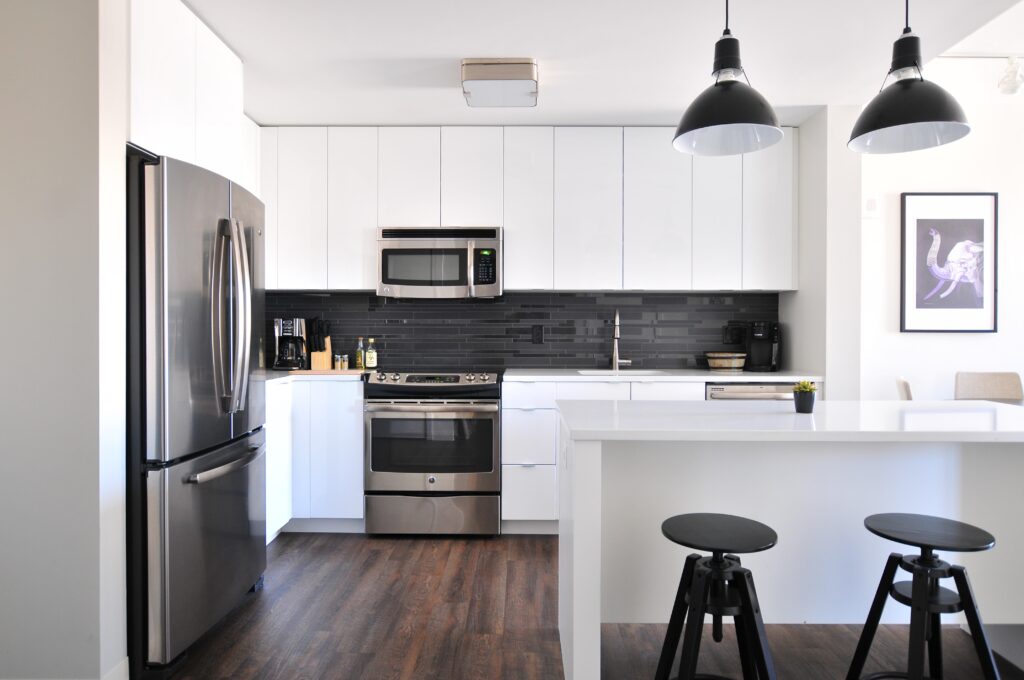If you’re considering adding a workshop to your home, you’re probably wondering how much value it will actually bring. A workshop can be a fantastic addition to any property, providing a dedicated space for DIY projects, hobbies, or even a small business. In this article, we’ll explore the impact of having a workshop on your home’s value and whether it’s a worthwhile investment. So, before you start hammering away, let’s find out just how much a workshop can truly add to the value of your home.

Factors to Consider
Location
When considering adding a workshop to your home, the location plays a crucial role. It’s important to choose a location that is easily accessible and convenient for both you and potential buyers in the future. A workshop located too far from the main dwelling may not be as appealing and practical, which could potentially reduce its value.
Size
The size of the workshop is another significant factor to consider. It should be large enough to accommodate your needs and provide ample space for your projects. However, it’s essential to find a balance as an excessively large workshop may take up valuable real estate and potentially decrease the value of your home.
Quality of Construction
The quality of construction is a vital consideration when it comes to a workshop. Opting for high-quality materials and craftsmanship ensures durability and longevity. A well-constructed workshop will not only increase its value but also provide a safe and enjoyable space for your projects.
Functionality
Functionality is key when it comes to a workshop. Consider the layout, workflow, and accessibility of tools and equipment. A well-designed workshop that maximizes efficiency and productivity will undoubtedly elevate its value.
Aesthetics
While aesthetics may not directly impact the functionality of a workshop, they do play a role in its overall value. A visually appealing workshop that blends well with the architectural style of your home and surrounding environment will create a positive impression on potential buyers.
Permits and Regulations
Before constructing a workshop, it’s crucial to research and comply with local permits and regulations. Failure to do so can result in legal issues and even decrease the value of your home. Ensure all necessary permits are obtained and that the workshop adheres to building codes and regulations.
Wiring and Plumbing
Proper wiring and plumbing are essential aspects of a functional workshop. Adequate electrical outlets and lighting are crucial for powering tools and ensuring a safe working environment. If you plan to have plumbing in your workshop, consider the convenience of water access and drainage for certain projects.
Insulation
Insulating your workshop is essential for maintaining a comfortable temperature year-round. Proper insulation helps regulate temperature, reduce noise, and increase energy efficiency. An insulated workshop adds value by providing a comfortable and usable space regardless of the weather conditions.
Safety and Security
Safety and security are paramount when it comes to a workshop. Consider installing safety features such as fire extinguishers, smoke detectors, and proper ventilation systems. Additionally, ensure the workshop is secure to protect valuable tools and equipment.
Maintenance and Upkeep
A well-maintained workshop will significantly impact its value. Regular cleaning, organization, and maintenance demonstrate care and consideration for the space. Keeping the workshop in excellent condition will not only preserve its value but also attract potential buyers in the future.
The Impact of a Workshop on Home Value
Increase in Property Value
Adding a workshop to your home can significantly increase its overall value. A well-designed and functional workshop is seen as an attractive asset by potential buyers, which can lead to a higher appraisal value.
Appeal to Potential Buyers
A workshop appeals to a wide range of potential buyers, including hobbyists, artists, and DIY enthusiasts. This increased market appeal can result in a higher demand for your home, potentially leading to a quicker sale and a more favorable selling price.
Competitive Advantage
In a competitive real estate market, having a workshop can give your home a significant advantage over similar properties. It becomes a unique selling point that sets your home apart from others, making it more attractive to potential buyers.
Return on Investment
Investing in a workshop can provide a substantial return on investment. With the added value to your home, you can potentially recoup the cost of construction and even make a profit when you decide to sell.
Potential for Higher Selling Price
A workshop that is well-equipped and properly constructed can justify a higher selling price for your home. Buyers are often willing to pay a premium for a home with a dedicated workspace already in place.
Attracting DIY Enthusiasts
A workshop is a dream come true for many DIY enthusiasts. Having a dedicated space to work on projects can be an irresistible feature, attracting this specific market. This increased demand can drive up the value of your home.
Increase in Resale Potential
A home with a workshop has greater resale potential due to its added desirability. If you decide to move in the future, having a workshop can make your home more appealing to a broader range of buyers.
Enhancing Home Equity
Adding a workshop to your property can significantly enhance your home equity. As you continue to make mortgage payments and as the value of your home increases, you build equity that can be beneficial for future financial endeavors.
Long-Term Benefits
A workshop provides long-term benefits to homeowners beyond just monetary value. It offers a dedicated space to pursue hobbies, work on creative projects, or even start a small business. The enjoyment and satisfaction derived from having a workshop can greatly enhance your overall quality of life.
Demand-Specific Markets
Different regions may have specific demands when it comes to workshops. For example, rural areas may prioritize workshops suitable for woodworking or agricultural pursuits, while urban areas may prioritize studios for artists. Understanding the demand in your specific market can guide your investment decisions.
Case Studies and Data
Real Estate Market Analysis
Conducting a real estate market analysis can provide valuable insights into how workshops impact property values in your area. Analyzing recent sales data and comparing the prices of homes with and without workshops can help determine the potential value increase.
Comparative Home Values
Comparing the values of similar homes with and without workshops can provide a clear understanding of the positive impact a workshop can have on property value. This data can be gathered from local real estate listings, property appraisals, or online resources.
Appraisal Reports
Obtaining appraisal reports from certified appraisers can give you an accurate assessment of how much value a workshop adds to a property. Appraisers assess all factors contributing to a home’s value, including the presence of a workshop.
Seller’s Perspective
Interviewing sellers who have recently sold homes with workshops can provide firsthand insights into the impact on property value. Hearing about their experiences and the offers they received can offer valuable information when assessing the value of a workshop.
Buyer’s Perspective
Speaking with potential homebuyers who have actively sought out homes with workshops can provide a buyer’s perspective on value. Understanding what features and benefits they prioritize when searching for a property can further validate the impact of a workshop on a home’s value.
Market Trends
Examining market trends in the real estate industry can shed light on the demand for homes with workshops. Identifying any shifts or patterns in buyer preferences can help determine the potential value increase associated with workshops.
Property Value Statistics
Analyzing property value statistics in your area, with a specific focus on homes with workshops, can provide concrete data on how much value is added. Local government agencies, real estate associations, and industry publications may have relevant data to support your analysis.
Housing Market Studies
Studying housing market studies conducted by reputable organizations can offer broader insights into the impact of home improvements, such as workshops, on property values. These studies often provide data-driven conclusions that can guide your decision-making process.
Home Improvement Surveys
Surveys conducted among homeowners and potential buyers can offer valuable opinions and preferences regarding workshops. Understanding the attitudes and perceptions of individuals within your target market can strengthen the case for the added value of a workshop.
Expert Opinions
Consulting with real estate experts, appraisers, and home improvement professionals can provide expert opinions on the impact of a workshop on property values. These professionals have firsthand experience working with buyers and sellers and can provide valuable insights based on their expertise.
Tips for Maximizing Workshop Value
Planning and Design
Proper planning and design are fundamental to maximizing the value of a workshop. Consider your specific needs and preferences and create a detailed plan that takes into account the layout, workflow, and storage requirements of your workshop.
Choosing the Right Location
Selecting the right location for your workshop is crucial for maximizing its value. Consider factors such as proximity to the main dwelling, ease of access, and suitability for your specific projects. A well-chosen location can enhance the overall appeal and functionality of your workshop.
Optimizing Space and Layout
Efficiently utilizing the available space and creating a practical layout is essential for maximizing workshop value. Consider the placement of workbenches, storage cabinets, and machinery to ensure optimal workflow and ease of use.
Quality Construction Materials
Investing in high-quality construction materials not only ensures the durability and longevity of your workshop but also enhances its value. Opt for materials that are suitable for your specific needs and climate, and prioritize quality craftsmanship.
Functional and Versatile Features
Incorporate functional and versatile features into your workshop design to increase its value. Consider features such as built-in storage solutions, adjustable lighting, and flexible workspace configurations that can accommodate a range of projects.
Proper Lighting and Ventilation
A well-lit and well-ventilated workshop is not only practical but also increases its value. Ensure there is ample natural and artificial lighting and ventilation to create a comfortable and safe working environment.
Consideration for Noise Control
Depending on the type of projects you plan to undertake, noise control may be a consideration for maximizing workshop value. Incorporate soundproofing measures such as insulation, acoustic panels, and vibration-dampening materials to minimize noise disturbance.
Aesthetically Pleasing Exterior
While functionality takes precedence, don’t overlook the importance of an aesthetically pleasing exterior. Choose exterior finishes and details that complement the style of your home and create a cohesive overall appearance.
Security Measures
Implementing security measures in your workshop is crucial for maximizing its value. Consider features such as enhanced locks, security cameras, and an alarm system to provide peace of mind for both you and potential buyers.
Provision for Future Technology
Future-proofing your workshop by incorporating provisions for emerging technologies can add value. Consider wiring for smart home integration, additional electrical outlets, and connectivity options to accommodate potential advancements.

Factors That May Decrease Value
Poor Workmanship
Inferior workmanship and low-quality construction materials can significantly decrease the value of a workshop. It’s important to ensure that all aspects of the workshop, from the foundation to the finishes, are completed to a high standard.
Lack of Permits or Violations
Failure to obtain necessary permits or violating building codes can negatively impact the value of a workshop. Potential buyers may be hesitant to purchase a property with unresolved permit issues and building code violations, resulting in a lower sale price.
Structural Issues
Presence of structural issues, such as a compromised foundation or unstable walls, can decrease the value of a workshop. Ensure that the construction is structurally sound to maintain its value and ensure the safety of occupants.
Inefficient Layout
An inefficient layout that inhibits workflow and limits functionality can reduce the value of a workshop. A poorly designed workshop may not appeal to potential buyers who prioritize a practical and well-organized workspace.
Deterioration or Neglect
Lack of proper maintenance and neglect can lead to deterioration of the workshop over time. A poorly maintained workshop can significantly decrease its value, as prospective buyers may perceive additional costs associated with repairs and renovations.
Outdated or Unsafe Electrical Systems
Outdated or unsafe electrical systems can pose a significant risk and decrease the value of a workshop. It’s important to ensure that electrical systems are up to code, regularly inspected, and updated as needed to maintain safety and value.
Non-Compliance With Building Codes
Failure to comply with building codes and regulations can result in penalties, legal issues, and decreased value. Always ensure that your workshop construction adheres to local building codes to maintain its value and avoid future complications.
Devaluation Due to Overpricing
Overpricing your home due to the presence of a workshop can have a counterproductive effect on its value. It’s essential to set a reasonable and competitive price that reflects both the value of the home and the workshop.
Limited Market Appeal
While workshops have broad market appeal, there may be instances where the target market for your home is limited. For example, if the area lacks demand for homes with workshops, it may affect the value and desirability of your property.
Negative Impact on Curb Appeal
An unsightly workshop or one that clashes with the architectural style of your home can negatively impact curb appeal. A poor aesthetic can reduce the value of your home as it affects the overall impression and attractiveness.
Determining Workshop Value
Appraisal Process
The appraisal process is crucial in determining the value of a workshop. Certified appraisers assess various factors, including the size, quality, and functionality of the workshop, to arrive at an accurate valuation.
Consideration of Comparable Properties
Appraisers consider comparable properties, especially those with workshops, to determine the value of a workshop. Evaluating recent sales data and prices of similar homes in the area provides valuable insights into the value added by a workshop.
Assessment of Functional Utility
Appraisers assess the functional utility of a workshop to determine its value. Factors such as the efficiency of the layout, availability of proper amenities, and suitability for various projects are considered when arriving at a valuation.
Evaluation of Market Demand
The demand for homes with workshops in the local market is a significant factor in determining workshop value. Appraisers consider the level of demand and the specific preferences of potential buyers in the area.
Analysis of Cost vs. Value
Appraisers analyze the cost versus value ratio of a workshop to determine its impact on overall property value. This analysis compares the cost of constructing a workshop to the potential increase in home value to assess its worth.
Professional Opinion
Seeking a professional opinion from an experienced appraiser or real estate expert can offer valuable insights into determining workshop value. These professionals have an in-depth understanding of market trends and can provide an unbiased analysis.
Economic Factors
Economic factors such as interest rates, local job market, and overall economic conditions can influence workshop value. Appraisers consider these factors when assessing the potential impact on the overall value of a home.
Local Market Conditions
Local market conditions, including supply and demand dynamics, play a significant role in determining workshop value. Analyzing the current state of the real estate market and the specific market conditions in your area helps provide context for workshop valuations.
Property Types and Locations
Different types of properties and locations have varying workshop value. For example, workshops in upscale neighborhoods may contribute more to property values compared to workshops in areas with lower home values.
Real Estate Market Trends
Staying informed about real estate market trends can provide valuable insights into workshop value. Monitoring trends in home improvement and the demand for specific features, such as workshops, can help assess potential impacts on property values.

Conclusion
Adding a workshop to your home can have a significant positive impact on its value. Consider various factors such as location, size, quality of construction, functionality, aesthetics, and permits when planning and designing your workshop. A well-designed, well-maintained, and properly constructed workshop can increase your property value, attract potential buyers, and provide a strong return on investment. Conducting thorough research, analyzing data and market trends, and seeking expert opinions can help you determine the specific impact of a workshop on your home’s value. Remember, not only does a workshop increase monetary value, but it also enhances livability and enjoyment, provides personalization and customization options, and offers long-term benefits. A workshop is an investment in both your home and your lifestyle, with the potential to significantly enhance your overall quality of life.

